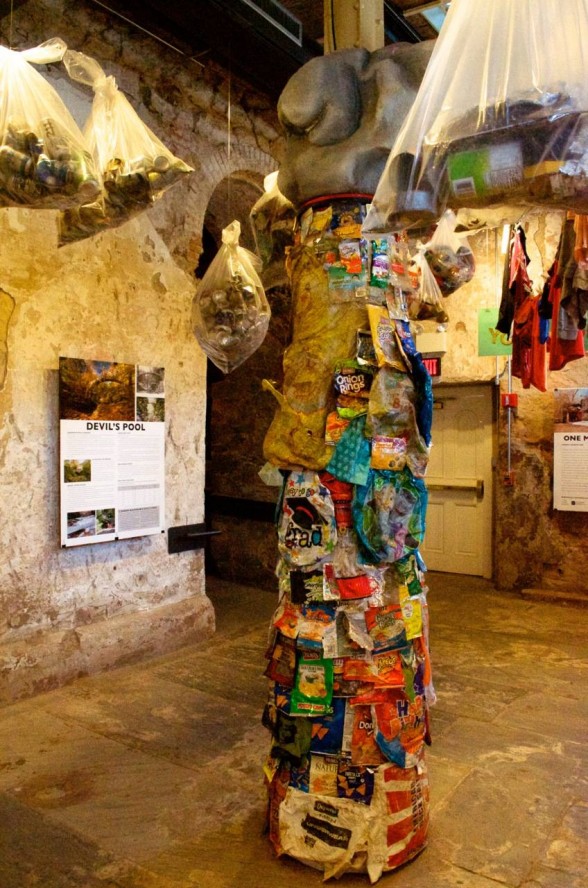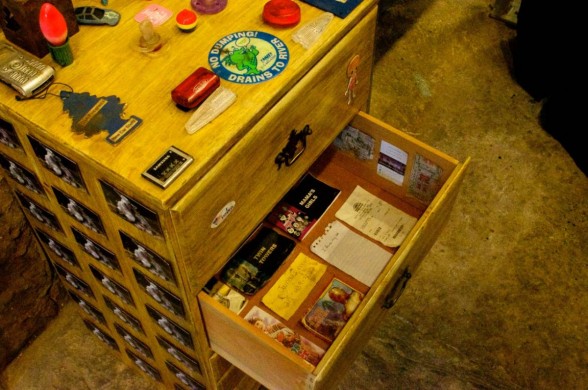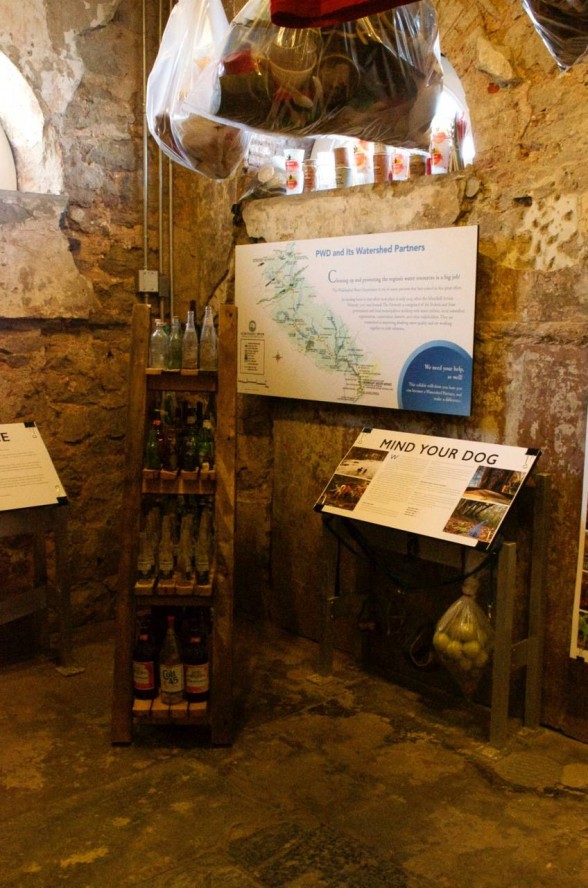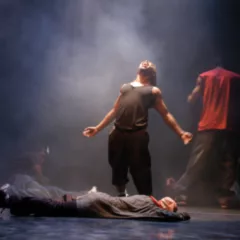[Lauren comes face-to-face with evidence of humanity’s disrespect for nature in Bradley Maule’s colorful trash installation. — the Artblog editors]
Bradley Maule, founder and editor of Philly Skyline, began his weekly hikes through the Wissahickon in early 2014, collecting all of the trash he found. He set out on 2- to 3-mile weekly treks, staying out for about 4-5 hours at a time and covering the grounds of the 1800-acre Wissahickon Park. He set out with a trash picker, and if he could not carry out an item (due to weight, size, etc.) he took note of it on his phone and made arrangements with the Philadelphia Parks and Recreation and the Friends of Wissahickon to remove it.
The goal? To show a year’s worth of garbage in one spot.
Maule took a cross-country trip in 2009, and prior to his journey, he had one final huzzah in Devil’s Pool. He was disheartened at the amount of trash floating around the landmark. Blunt wrappers, pregnancy tests, air fresheners, beer bottles (oh, the beer bottles), deflated Mylar balloons, syringes, toy cars. Empty cigarette packs. Half-full cigarette packs (is the pack half-full or empty?). Water bottles. Bags of dog waste (you guys really couldn’t throw those out?). It’s no wonder that Philadelphia has been infamously labeled as “Filthadelphia”–there’s more than enough trash baking on our sidewalks to fuel that complex. Maule’s mission was to present an installation in the name of personal research, environmental betterment, and public awareness of our own mess.
Trash math

Enter the Fairmount Water Works, an organization geared toward educating citizens about our land and water; it collaborates with partners to create appreciation and awareness of Philadelphia’s natural environment. This year, the organization celebrated its 200th anniversary (!!!) and in honor of that celebration, Maule created an installation of his findings from his journey. The Philadelphia Parks and Recreation Department lent Maule a shed, where he sorted through and catalogued his collection. He collected 3,786 pieces of garbage during the year, which breaks down to about 315 pieces of trash a month, 78 pieces a week, 11 pieces a day. And if that number doesn’t seem large to you, factor in that this was in just under a 3-mile radius. That’s more than 1,000 pieces of trash per mile.

Walking into Maule’s installation in the Water Works is simultaneously an overwhelming and eye-opening experience. Trash bags of meticulously organized and catalogued trash specimens hang suspended from rafters; beer bottles stand proud and empty next to one another on an abandoned ladder, and the room’s center pillar is festooned with balloons and shopping bags. A tiny nightstand with tinier drawers stands in the corner of the room, each of the drawers boasting their painstakingly catalogued treasures–blunt wrappers, cigarette packs, tiny toys, pregnancy tests.
Maule’s obsessive display method bears similarities to an entomologist’s–clinical, clean, orderly. All of the papers are smoothed down and wiped clean, almost in attempt to restore the items to what they once were. There was surprisingly no smell coming from the garbage, but we need to remember that some of this trash is so old it’s probably lost its scent.
The legacy of garbage as art

Included in the installation were several photos of the park taken by Maule on his treks, all with descriptions of the project in a voice that reads as powerful and almost shamanistic. The installation is one of many environmental awareness campaigns springing up around the city, going as far back as 2012 to Tim Belknap and Ryan McCartney’s 10-day project, Refuse Reuse: Language for the Common Landfill, and even residencies targeted toward recycling, such as RAIR. Maule took an opportunity to truly connect with the nature that surrounds us, and through a scientific method of art-making (or perhaps an artful approach to science), he presents to his community the shockingly true evidence that we all ignore on a daily basis: we don’t take care of the place we all live in.

One Man’s Trash by Bradley Maule is on display at Fairmount Water Works from April 22 – June 26. 2015.









